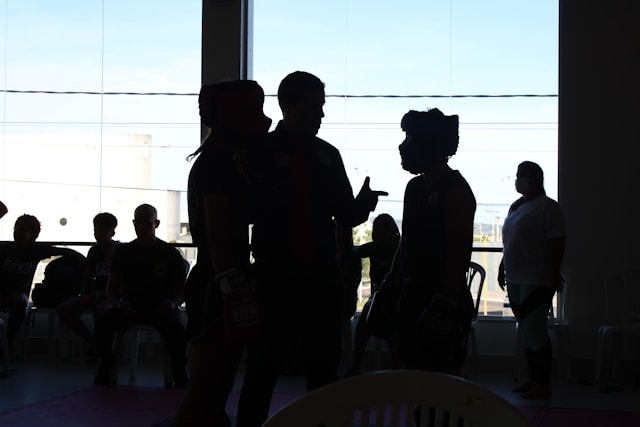Have you ever found yourself mentally labeling someone based on their appearance, the way they speak, or how they dress without even realizing it? This small, automatic judgment, often imperceptible, is a natural human response. But when we don’t question it, it can become a barrier that limits our ability to genuinely connect with others.
What our labels tell us
The human brain is designed to categorize and simplify information. This survival mechanism helped us, in the past, quickly identify threats or allies. However, in modern life, this instinct can create labels that distort reality.
Think about a work meeting where someone arrives late and disheveled. Your mind might label them as "irresponsible" or "disorganized" without knowing their story. Maybe they had a family emergency or a particularly difficult day.
How to Identify our Biases
-
Listen to your initial thoughts: Every time you find yourself judging someone, pause and analyze: What exactly did I think? Where did that idea come from?
-
Practice internal questioning: Ask yourself: Is what I’m thinking true? Do I have enough evidence to maintain this judgment?
-
Track patterns: Keep a journal where you note situations where you experienced automatic judgments and what you discovered through reflection.
Stop Judging and open the door to empathy
Mindfulness is the practice of bringing full attention to the present moment without judgment. When we apply this technique to our social interactions, we become aware of how we automatically judge and gain the space to choose a more compassionate response.
- Mindfulness exercise: Before passing judgment, take three deep breaths and observe yourself. Ask: What am I feeling? Why am I reacting this way?
Steps to apply mindfulness in your relationships
-
Observe without reacting: When you face someone who triggers discomfort or judgments, observe that feeling without trying to eliminate it.
-
Accept the humanity of others: Remember that, like you, that person has a life full of achievements and challenges.
-
Shift your focus: Instead of focusing on what you dislike, find something you can admire or understand in the other person.
Inclusive Practices to Genuinely Connect
Inclusion is not just an ideal but a constant practice. It means being willing to see beyond differences and create spaces where people feel accepted and valued.
Concrete actions to develop inclusion:
-
Listen actively: Ask open-ended questions and show genuine interest in the responses.
- Example: Instead of asking, "Did you have a good day?", try saying, "What was the most meaningful thing that happened to you today?"
-
Avoid assumptions: Don’t presume you know what someone feels or thinks.
- Try saying: "Tell me more about how you see this situation."
-
Cultivate positive curiosity: Every person has a unique story. Be interested in discovering it.
-
Perform unexpected acts of kindness: Small gestures, like smiling or expressing gratitude, can turn superficial interactions into moments of deep connection.
When a simple conversation changes everything
I remember meeting a new neighbor who, at first glance, seemed "serious and distant." One afternoon, I decided to greet him and ask a simple question about his garden. To my surprise, we ended up talking for hours. I discovered he had gone through difficult times, and the garden was his way of healing. If I had stuck to my initial judgment, I would have missed a meaningful connection.
Conclusion
Overcoming biases and promoting inclusion is not a destination but a continuous journey. Each time we choose to observe instead of judge, ask instead of assume, and connect instead of distance ourselves, we take a step toward a more humane world.
When was the last time you challenged a bias and discovered something unexpected? I would love to read your story in the comments. Share, and let’s build deeper, more genuine connections together!
Join a Supportive Community
To further support your journey in developing positive habits, consider using Deeditt, a mobile app where people can share positive thoughts and learn from each other's experiences. Being part of a community that fosters positive change can provide you with the encouragement and motivation you need. On Deeditt, you can connect with like-minded people, celebrate your achievements, and find inspiration in the successes and strategies of others. Embrace the power of community and make your habit-forming journey even more rewarding with Deeditt.
Fostering a Positive Mindset
At Deeditt, we are committed to supporting your journey of personal growth and positive thinking. We believe in creating a genuine community where mutual support is our greatest strength. We are here to listen to your feedback and suggestions, and we always welcome a simple "hello." Together, we can share our experiences, celebrate our victories, and overcome our challenges. Join us on this journey and let's support each other in fostering a positive mindset and continuous personal development. Your feedback and participation are what make this community strong and vibrant.
Photo by Ednilson Cardoso dos Santos on Unsplash


